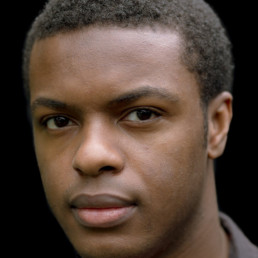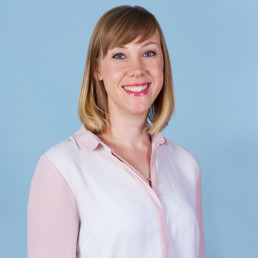Telling it Like it is: Decolonisation is Not Diversity

Written by Tre Ventour
Northamptonian writer-poet, educator and curator, whose work has often revolved around arts, Black history and issues of race and social justice.
Previously published in Northampton Chronicle [edited]
Since the Murder of George Floyd, there has been renewed interest in Education to decolonise the curriculum, but I have so often seen this term decolonisation lumped with Diversity and Inclusion [D&I].
Movements to decolonise curricula have been around for years but progress has been little. To put more Black and Brown authors on course reading lists is simply diversity. And as Sofia Akel writes, “diversity can still exist within this western bias.” D&I and decolonisation are not the same. Academic Kavita Bhanot states that “the concept of diversity only exists if there is an assumed neutral point from which ‘others’ are ‘diverse.’” So, in responding to the Black Lives Matter movement, diversity can only exist in proximity to White people because diversity is “the new corporatized version of multiculturalism” and what we should be exploring is decolonial thought.
In order to understand decolonisation, we must look at colonialism, specifically how it was more than the brutalisation of a set of peoples and cultures. It also includes intellectual genocides through knowledge production (i.e the erasure of African history), or if you want the jargon, epistemic violence. Epistemology is the theory of knowledge, so epistemicide is in reference to a violence committed through knowledge. This combined with the codification of White western European thought into our structures, very much a by-product of colonial epistemologies, is what we are living with today. Meaning these codifications have also centralised White western experiences and ways of thinking/acting as the universal norm, with Dr. Shona Hunter describing Whiteness as “the ethos of the impulse to govern. … it is not just that whiteness is sameness. It is the generalizing universalizing impulse, the impulse to have power over life, the ultimate controlling impulse.”
Sofia Akel also says “decolonisation typically refers to the withdrawal of political, military and governmental rule of a colonised land by its invaders. Decolonising education, however, is often understood as the process in which we rethink, reframe and reconstruct the curricula and research that preserve the Europe-centred, colonial lens.” So, this is something undiscussed in just putting ‘diverse authors’ on reading lists. Prof. Gurminder Bhambra and colleagues believe decolonisation should provoke a change in our thinking about the world – where racism, empire and colonialism are placed at the centre and positioned as objects around which our present world is shaped.
During the Labour Party’s Black History Month debate in October, the term decolonisation was contested by members of The Government. Bhambra and colleagues think that “one of the key challenges that decolonising approaches have presented to Eurocentric forms of knowledge is an insistence on positionality and plurality.” This means the conflicting different stances that can be taken in relation to arguments about decolonial thought. One such example could be to look at how colonialism is discussed in geographies situated in the Global South compared to the Global North(west). On a personal note, to me decolonising the curriculum could begin with looking at what epistemic violence looks like in STEM subjects. We could start by interrogating our very language in relation to Whiteness, (terms like East and West) and how the words and terms we use are vital to how we relate to our identities, communities and each other.
Since the 2020 anti-racism resurgence, there’s been much debate about White privilege, a notion that has a long history in print with work having been done by thinkers, including WEB DuBois, Kalwant Bhopal, Peggy McIntosh, Theodore W. Allen, and more famously in the mainstream with Reni Eddo-Lodge. In our want to decolonise, it would be of value to also critique Whiteness, especially by looking at the work of Black and Brown authors, since Whiteness is often better critiqued from those outside of it. If we look at the current colonised curriculum as a symptom of White supremacy, we might be able to change our thinking beyond individuals. Just as Charles Mills writes, “unlike the currently more fashionable “white privilege” white supremacy implies the existence of a system that not only privileges whites but is run by whites for white benefit.”
So, when we think about decolonisation, we must the consider language. So, here we begin to see that D&I and decolonisation are different, and it’s often infuriating to see them lumped together. In admitting school, FE college and university curricula are colonised, we must then see how our education system is complicit in White supremacy. The Murder of George Floyd was a wakeup call for many. Movements to decolonise the curriculum have been around for decades and this is simply the latest chapter in a much longer, subtler history. Decolonise, not diversify, and with universities as well, in the tiger’s mouth of Coronavirus and students being fed a colonised curriculum in the White academy, you really have to ask, what exactly are students paying for?
How Can We Create a Curriculum that is Inclusive of Queer Theory?

Written by George Hayward
(he/him), English Teacher in East London, LGBTQ+ Advocate.
During my time as a student, I often felt a lack of inclusivity in the curriculum I was studying. Reading great classics and beloved page turners such as To Kill A Mockingbird and Lord of the Flies, I found myself wondering why none of these stories were about people like me. When I reached university, I discovered Queer Theory and I was mindblown. Not only were there stories about people like me, but there were academics studying and rereading the texts I grew up with and held dear through a lens of queer understanding. One such text was Robert Louis Stevenson’s The Strange Case of Dr Jekyll and Mr Hyde. I had the opportunity to study these readings during my time at university, so when the opportunity arose to deliver a lecture on it at my school in East London, I was overjoyed. While planning the session, I drew upon the essays and research I had from my undergraduate degree, revisiting the work of prominent theorists such as Elaine Showalter, Judith Butler, Eve Sedgwick and Michel Focault. The most extensive in relation to Jekyll and Hyde being Showalter’s paper Dr Jekyll’s closet.
Queer Theory aims in principle to challenge heteronormativity: the assumption that heterosexuality is the default state of being. It digs into the structures of understanding within art, literature and society and dismantles them. This is an important area of theory as it provides visibility. It allows students of all backgrounds and identities to see themselves in the curriculum they study. It shows them that they are seen and that different people exist. There is a lot of talk about ‘acceptance’ of LGBTQ+ peoples and while acceptance is a great first step, what we need is celebration and understanding. The teaching of Queer Theory and narratives provides this understanding and promotes the celebration of all our students and their identities. It promotes a culture of inclusive allyship and support, where students, staff and their families from all walks of life can lift each other up and be their true authentic selves. All our students deserve to feel they are lifted up in a space where they are safe and important.
The session was received well by staff and students alike. I was able to offer the session twice, firstly to the staff of the English department and secondly to our year 10 students. Staff were engaged with the topic and felt that Queer Theory provides another framework of understanding to utilise in our classrooms. It provides another tool in our analysis toolbox to dig deep into language and encourage our students to be critical thinkers. Similarly, students in my year 10 class that attended the session found the subject refreshing and interesting. I found that while Queer Theory and readings may seem oblique to some, students and staff alike were able to engage with the topic and take away some food for thought. The opportunity to deliver the session was incredibly fulfilling for me on a personal level and it is my true belief that the teaching of these theoretical frameworks is of benefit to every student. I believe it is crucial to foster this culture of inclusivity and celebration for all our learners and I hope that Queer Theory will be a valuable step on this journey.
How does material deprivation intersect with ethnicity to understand the variations in the achievement among BAME students?

Written by Nicole Edwards
Deputy Curriculum leader for Social Sciences/Aspiring Heads Student 2020-21
This blog will explore the relationship between material deprivation (social class) and the differences in achievement among Black and Minority Ethnic Groups (BAME) within the United Kingdom.
It can be argued that there are differences in achievement on groups classified as BAME. According to a report published by the UK Government (2019) titled ‘GCSE results (Attainment 8)’ highlights that overall, students classified as Chinese or Asian tend to have a high attainment 8 score. For example, on average Chinese students scored 64.3 out of 90 and Asian students scored 51.2 out of 90, whereas students classified as Black, scored on average 44.9 out of 90 (UK Government, 2019). However, there are some significant differences in achievement among students classified as Asian. For example, according to the above report, Indian students tend to have a higher attainment 8 score, of 50.6 out of 90 (UK Government, 2019) compared with that of Pakistani students, who score on average, 46.2 out of 90. Similarly, there are variations in achievement amongst students classified as Black. For example, Black African students on average have a higher attainment 8 score of 47.3 out of 90 compared with Black Caribbean who score on average 39.40 out of 90 (UK Government, 2019).
The material deprivation theory (which links to social class) could be useful in understanding why there are variations in achievement among BAME groups, which could have an impact on life chances. The term ‘material deprivation’ refers to households which are unable to afford basic resources (including educational resources, school uniform, food etc). The term ‘life chances’ coined by sociologist, Weber, refers to the chances that different social groups have of obtaining those things in society regarded as desirable. For example, educational qualifications or of suffering those things regarded as undesirable, such as, low income. According to Guy Palmer (2012) almost 50% of BAME students tend to come from low-income families which can impact their life chances. For example, some may lack the necessary economic capital to access high-quality education. This includes, not being able to afford extra tuition to support with their learning outside of the classroom, computer devices and internet access for online learning. An article written by Jimenez (2020) discusses the impact of the ‘digital divide’ during the COVID-19 pandemic, on ethnic minority students in the UK, highlights that some students from low-income families less likely to have access to the internet, leading to a gap in educational progress.
Furthermore, the intersectional relationship between ethnicity and material deprivation, can be reflected in statistical data on Free school meals (FSM) and achievement. In a report by UK Government (2019) indicates that a number of Pakistani, Bangladeshi, Black African and Caribbean students from low-income families are eligible for FSM. The material deprivation theory can therefore account for the underperformance of some Pakistani, Bangladeshi, Black African/Caribbean students are on FSM, because some of them are unable to afford the necessary academic resources to help them with their studies. As a result, ethnic minorities who are materially deprived and who on FSM tend to make less academic progress than that of students who are not on FSM. As supported by UK Government Report (2019) highlights that pupils on FSM made -0.53 progress, compared with students non-FSM students, who made 0.05 progress on average in 2019. However, not all ethnic minorities who are classified as FSM underperform significantly in education. It is important to note that Chinese students classified as FSM, made an average progress of 0.66 (UK Government, 2019). In addition, the difference between the progress of Chinese students on FSM and Chinese students who are non-FSM tends to be minimal. Therefore, in this instance, it might be worthwhile understanding whether culture, rather than material deprivation, has more of a significant impact the achievement of Chinese students.
In conclusion, this blog has discussed how material deprivation intersects with ethnicity in relation to achievement among some BAME students. It has referred to statistical data on attainment scores of BAME groups, including, Chinese (who tend to have a high attainment score) Asian and Black ethnic groups. Notably, there are variations in achievement within both Asian and Black ethnic groups. The material deprivation theory has proven to be useful in understanding the impact of lack of income and resources upon the achievement of some BAME students.
References
Jiménez, D (2020) The Disproportionate Educational Impact of Covid-19 on BAME students. Available at: https://epigram.org.uk/2020/09/03/the-disproportionate-impact-of-covid-19-in-bame-students/ .
Palmer, G. (2012) The Poverty Site. Available at: www.poverty.ac.uk.
UK Government (2019) GCSE results (‘Attainment 8’). Available at: https://www.ethnicity-facts-figures.service.gov.uk/education-skills-and-training/11-to-16-years-old/gcse-results-attainment-8-for-children-aged-14-to-16-key-stage-4/latest
Research Assumptions: Collaboration with The Centre for Education and Youth

Written by Alix Robertson
Associate at The Centre for Education and Youth
A decade ago, a Canadian professor of human evolutionary biology named Joseph Heinrich published a paper with the curious title: ‘The weirdest people in the world?’.
The study explored how behavioural science was dominated by the perspectives of researchers who drew on samples from Western, Educated, Industrialised, Rich, and Democratic (WEIRD) societies. It has often been implicitly assumed that the results produced from working with these groups are as representative of the human species as any other population.
But are researchers justified in making this assumption? Heinrich and his colleagues, psychologists Steven Heine and Ara Norenzayan, pursued this question by carrying out an empirical review of studies involving comparative experimentation on important psychological or behavioural variables. While not all research is created equal, the study was published in the international journal ‘Behavioural and Brain Sciences’, as well as in the renowned British scientific journal ‘Nature’, and Henrich went on to develop the idea into a book that was released this year.
The researchers reported that findings based on ‘WEIRD’ subjects are actually particularly unusual, compared with the rest of the human species, across a range of areas including fairness, cooperation, reasoning styles and self-concepts. The study suggested that members of WEIRD societies, including young children, are among the least representative populations when it comes to generalising about humans. Heinrich concluded that “we need to be less cavalier in addressing questions of human nature on the basis of data drawn from this particularly thin, and rather unusual, slice of humanity”.
Given these findings, the team at CfEY are keen to use our expertise in research to support Diverse Educator’s goal of improving diversity, equity, and inclusion in education. To do this we will be acting as ‘ambassadors’ helping DiverseEd to establish its own research strand, made up of studies carried out by or focusing on groups within DiverseEd’s nine categories of protected characteristics – and beyond.
To kick start this work we have contributed some of our existing research to seed the collection and we look forward to supporting DiverseEd in growing this bank in future.
- Encountering Faiths and Beliefs: The role of Intercultural Education in schools and communities – a report with Three Faiths Forum (now The Faith & Belief Forum) outlining the key principles of Intercultural Education and offering insights into how these principles can be adapted to suit different settings’ needs.
- Special educational needs and their links to poverty - a report for the Joseph Rowntree Foundation showing close links between children having SEND and growing up in poverty; as well as the additional barriers these children face in accessing the support they need.
- Ethnicity, Gender and Social Mobility – a report for the Social Mobility Commissionin collaboration with Education Datalab, which explores how ethnicity, gender and poverty interact to support or constrain young people’s social mobility.
- Progression to University by Gypsy, Roma and Traveller Pupils - a report in partnership with Kings College London’s Widening Participation department, which reveals the barriers ‘at every level’ that combine to make Gypsy, Roma and Traveller pupils one of the most under-represented groups in UK universities.
- A Place to Call Home: Understanding Youth Homelessness – research undertaken in partnership with the Sage Foundation, looking at how youth homelessness and education interact, and different ways in which the education system can support young people at risk of becoming – or who are – homeless.
- Schools and Youth Mental Health: A briefing on current challenges and ways forward – a report with Minds Ahead examining the scale and severity of the UK’s Youth Mental health crisis.
- ‘Boys on Track’: Improving support for white FSM-eligible and black Caribbean boys in London - a report with the Greater London Authority looking at how support for white free school meal-eligible and black Caribbean boys across London can be improved.
- Special or Unique - a report from Disability Rights UK and CfEY that explores young people’s attitudes towards disability and young disabled people’s experiences of school.
- Representation, engagement and participation: Latinx students in higher education - a report with King’s College London, examining the representation, engagement and participation of Latinx students in higher education.
We hope that these examples of our work will inspire others to join in with this exciting initiative. At CfEY we apply a critical lens to everything we do, and while anyone who is interested will be free to submit their research to the collection, we encourage the sharing of robust findings. By contributing quality work on the important themes that DiverseEd spotlights, you will be helping to build up a growing bank of studies that will encourage readers to think carefully about diversity and equality, and how they can drive improvements in representation.
Watch out for two events Diverse Educators (with support from the CfEY) will be running early next year to introduce the DiverseEd research strand.

